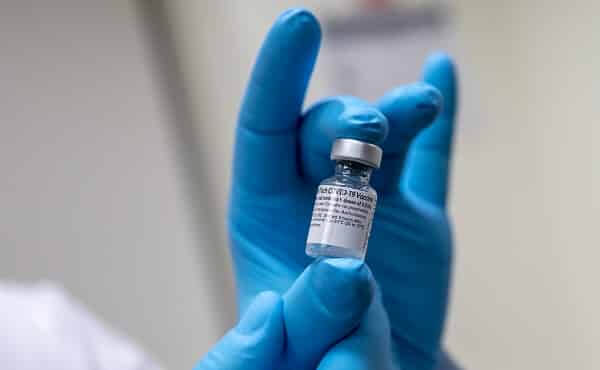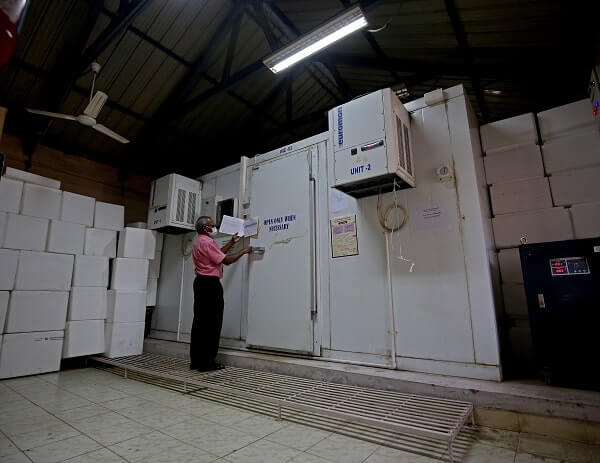Dr Vyom Sharma is a medical practitioner in Melbourne, specialising in general practice. As a health commentator, he hosts the show Radiotherapy on Triple R, writes columns in the mainstream press, and appears frequently on our TV screens, notably on ABC’s Q+A and The Drum. His particular passion is reserved for dispelling misinformation and advocating evidence-based medicine.
He sits down with Indian Link to answer frequently asked questions about the coronavirus vaccine, set to roll out this month.
What should I do before I get the vaccine?
There are three things you could do. First, make sure you’re feeling well on the day. Generally, if you’re unwell, we don’t like to vaccinate. So if you have any symptoms, ask your GP. Two, make a note of any other vaccinations you may have had recently – we like to space vaccinations apart. Three, keep at hand information about the things you may be allergic to.
How should I care for my elderly parents if they are getting the vaccine first?
There could be mild symptoms that could last for up to a day or two: a bit of pain where the needle went in, or perhaps tenderness; tiredness; sore muscles or aching joints. Keep your elderly parents under observation after their vaccination – best not to plan any activities.
Should I get the vaccine if I’m pregnant? If I’m trying to fall pregnant? If I’m a new mum?
The vaccine is not currently recommended for pregnant women. This is simply because we don’t have sufficient data at this stage. We’re waiting for more testing, and it is very likely that it will be recommended for them too in the future.
New mums should have no concerns whatsoever.
Trying to fall pregnant – while we don’t have official guidance on this yet, it will very likely be the same advice as new mums, unless you are looking to fall pregnant in the same cycle.
What about newborns?
The vaccine is only for people 16 years and over, at this stage. Testing for children only began much later in the piece.
What about allergic reactions?
Allergic reactions can occur due to anything, but life-threatening allergic reactions to COVID-19 vaccines are very rare. But just in case, you’ll be asked to stay for 15 minutes after being vaccinated. If you develop any concerning signs, you can be treated immediately – we are ready for this!
What should I know about side effects?
The vaccines are incredibly safe. There could be mild side effects in the first 24-48 hours like I’ve listed before, which are really common to all vaccinations.
Long-term side effects are rare, and most commonly pop up by the 45-day mark.
But consider this: we’ve had 80 million COVID vaccinations delivered worldwide already, and we’ve observed nothing of concern so far for several months.
Also, the Australian government has laid out a comprehensive program of investigation of all side effects.
How many shots will be needed?
Two, as of now. I can’t tell you right now what the time gap between the two will be.
After my two shots, will I continue to have to wear masks and sanitize frequently?
Yes, the current advice is to continue to wear masks and practise hand hygiene. The vaccines are very good at preventing life threatening or severe COVID-19. But could you still get a very mild infection that you pass on to others? Maybe – we’re still finding answers to this question. Until we’re sure, best to wear masks and sanitize to keep others safe.
READ ALSO: Expert says Oz should collect ethnic data during COVID tests

I had COVID and recovered. Do I still need to get vaccinated?
The general thinking is yes. The immune response that the vaccine provides can be better than the one you develop after getting COVID. But researchers are exploring whether just one shot is enough for people who’ve had COVID before.
Who should NOT get the vaccine?
Those who have had proven allergy to one of the specific ingredients of the vaccine. And that will affect a very, very small number of people.
What’s the difference between Pfizer and AstraZeneca vaccines?
Both vaccines are trying to do the same thing – teach our immune system to recognise a key part of the virus called the ‘spike protein’. The vaccines both ‘show’ our immune system this ‘spike’ protein, and then the body learns to recognise it, and is ready to destroy virus it if it ever encounters it again.
Pfizer vaccine teaches our body to make a small amount of spike protein, so the immune system can recognise it.
AstraZeneca vaccine uses another completely harmless virus to carry the spike protein into our body.
Either way, the immune system ‘sees’ the spike protein, and learns to defend the body against the virus if it ever comes across it in future.
How will they decide who gets which one? Can I choose?
At this stage, most people will get the AstraZeneca vaccine – simply because we have more of it. I don’t think people will get to make an individual choice. But frankly I don’t think it makes much difference at an individual level – I’d take the first one I can get. All the vaccines seem to be very effective at stopping life threatening infections, which is fantastic news.
Can I refuse vaccination?
It is not mandatory at all. In future perhaps in some high-risk occupations like aged or healthcare they might be mandatory but not for now. Ideally we don’t want it to be mandatory – we want you to see the benefits of it for yourself. But we are very hopeful: vaccination rates are high in this country – despite the anti-vax movement gaining momentum recently.
What would you say to people who are saying currently they don’t want the vaccine?
I’d say to them, find out more about the vaccine, from trained experts. Many people have valid concerns but in my experience, once I answer their questions, they feel much more confident about getting vaccinated!
What would you say to people who say they are worried about insufficient testing? That the vaccine came out in record time and so might not be reliable?
There are several steps in the preparation of a vaccine – there are preclinical studies, then trials in Phases 1, 2 and 3, and then an approval process. Not a single step was skipped in the making of COVID vaccines.
Yes they were developed in record time, but that was because there was overlap in some phases. Plus of course many of the bureaucratic and funding hurdles were removed, with a flood of resources thrown at this, given the urgency.
Wonderful things can happen when the focus is on the science.
And also, research on mRNA vaccines has been ongoing for years. What seems like a rapid invention was based on decades of work.
What do you know about India’s vaccines Covishield and Covaxin?
Covishield is the same as the Oxford-AstraZeneca. Covaxin, an Indian developed vaccine, we have not seen the results of the Phase 3 trials yet. It’s hard to comment on it without the full information.

A comment on India’s role in manufacturing and exporting the vaccine? Can India become the ‘pharmacy to the world’ as is being claimed?
Absolutely. India has done a fantastic job in the pharmaceutics industry. And given the current trade tensions with China, it can definitely make a play, especially as it is seen as more open.
But there are challenges, like there are every time you talk about China and India and the African nations. There are conversations about quality assurance and transparency. But for India this can be an amazing opportunity: if it can demonstrate high speed, high quality manufacturing, it can be the beginning of a new age.
Vaccine rollout
The vaccinations will be rolled out in three phases.
- Phase 1 is for those people at risk of exposure to the virus (ie healthcare workers; aged care and disability care); those at risk of developing COVID-19 (senior citizens, Aboriginal and Torres Strait Islander people under the age of 55, quarantine and border workers; essential workers).
- Phase 2 is planned for Aboriginal and Torres Strait Islanders adults between 18 to 54 years of age; Australians between 50-69 years of age; and other high-risk workers. With Phase 2b, the rest of the adult population is expected to be covered.
- Phase 3 will be for children “if recommended”, following evidence that they do not transmit the disease like adults.
Despite initial confusion, free access to the COVID vaccine has been assured to all visa-holders in Australia, including international students, refugees, bridging visa holders, and other temporary visitors. They are likely to be considered in Phase 2b, excepting at-risk temporary visa holders or those with existing health conditions.





